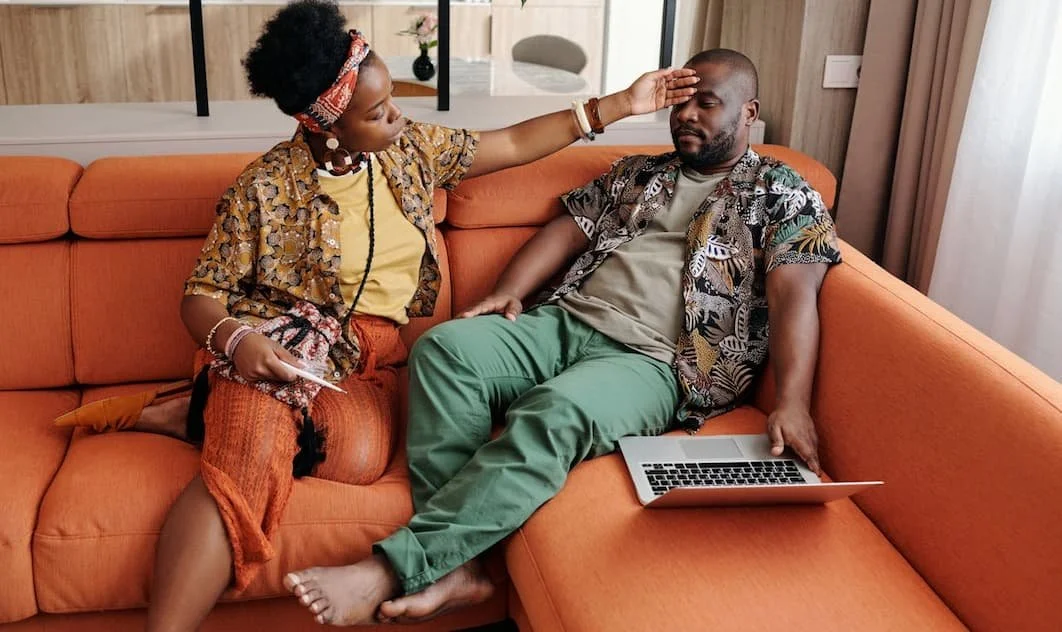
Couples Therapy
Are You And Your Partner Struggling With Communication Issues?
Have all your interactions become hostile, defensive, and full of resentment?
Is your relationship suffering from a lack of intimacy and affection?
Has infidelity put a strain on your marriage and made you wonder if trust can ever be rebuilt?
Maybe you’ve been feeling unloved, invalidated, and disconnected from your partner. Perhaps you just don’t feel seen in your relationship—your needs have fallen on the backburner and your sense of self has been eroded. Each time you try to advocate for yourself or make things right, conflict rears its ugly head. This makes it impossible to have meaningful, constructive dialogue with your partner. As a result, you may be thinking about seeing a couples therapist.
Feelings Of Emotional Distance May Have Crept Into Your Relationship
Maybe your marriage or relationship isn’t characterized by frequent conflict, but you and your partner just don’t feel as close as you once did. Over the years, other obligations and responsibilities may have created an ever-widening gulf between you. This is especially common after having a baby and expanding your family. You and your partner may not have as much time to go out and enjoy each other’s company, leading to a sense of emotional distance.
Right now, you may feel saddened and frustrated by the state of your relationship. You probably just wish you could turn back the clock to when you felt loved, respected, and wanted by your partner. In couples therapy, I can show you and your significant other how to repair your connection and reignite the spark that made you fall in love to begin with.

Even The Best Marriages And Relationships Go Through Seasons Of Disconnection
All relationships experience ups and downs over the course of a lifetime. Sometimes relationships change due to neglect, ineffective communication, infidelity, or life stressors outside of a couple’s control. There is wisdom in accepting that no relationship is perfect and that every couple will go through seasons of disconnection.
Unfortunately, too many people enter relationships with sky-high expectations that just don’t match reality. This is especially the case in the age of Facebook and Instagram. Social media teaches us that happy relationships entail pixie dust, fairy tales, and drinking pina coladas together in the Caribbean sun.
Having a healthy relationship, however, means understanding that romance is not all sunshine and rainbows. It’s okay to experience seasons of disconnection—you are not alone and you do not have to lose hope just because your relationship is struggling.
Our Busy, Demanding Lifestyles Make It Hard To Prioritize Relationships
In today’s hectic, fast-paced world, many of us struggle to make time for our significant others. We all wear many hats—we’re trying to be Mom or Dad of the year, have a successful career, and be loyal to our friends and family—and this makes it hard to prioritize our romantic relationships. All too often, our relationships suffer simply because we have too many demands and life transitions on our plate.
This is why it’s so important for couples to set aside time each week to focus exclusively on their relationship. Counseling gives you and your partner the chance to step away from all the stress and work on strengthening your emotional bond.
Therapy Can Teach Couples To Be Better Communicators, Lovers, And Friends
Let’s be honest: when you and your partner tried to work through conflict in the past, things may not have gone so well. Attempts to communicate may have fallen flat or just created more conflict. The good news is that I have a lot of experience working with couples. I know how to help them wade through difficult conversations peacefully and constructively. I’m here to help guide discussions and make sure the focus is not on venting or arguing, but on processing and resolving the deeper issues in your relationship.
Working together, I’ll help you and your partner manage conflict, deepen your trust, rekindle your intimacy, and create positive shifts in the way you interact with each other. You’ll learn to become better communicators, lovers, and—most importantly—friends. After all, love is very fickle. It often comes and goes in unpredictable ways. But when you have a strong friendship with your partner, you can withstand the fickleness of love and stay connected no matter what.
What To Expect In Couples Therapy Sessions
In the beginning, I will meet with you and your significant other together to learn about your relationship and figure out your goals for therapy. During the second session, I will meet with each of you separately to better understand your individual concerns.
These individual sessions are done for the greater good of the relationship—they’re not an opportunity to share secrets or badmouth your partner. The goal is to learn more about you personally so that we can enrich the work that the three of us do together. Afterwards, we will reconvene for the third session and resume joint sessions.
My approach to counseling is collaborative and involves meeting couples where they are and walking alongside them as they rebuild their marriage or relationship. I may occasionally incorporate elements from various therapeutic approaches when working with couples, but the two models I consistently use are Emotionally Focused Therapy (EFT) and The Gottman Method. Both of these approaches are empirically validated and have a proven track record of effectiveness (1) (2).
EFT can help you and your partner learn about each other’s emotional needs and triggers so that you can break free from the negative cycles affecting your relationship. You’ll learn to share your vulnerabilities in a way that doesn’t escalate conflict and allows your partner to truly understand what you’re trying to say. The Gottman Method is all about establishing a foundation of shared meaning together. It can help you and your partner deepen your friendship and ensure that you always feel safe, loved, and appreciated.
Ultimately, we believe that if you had it before, you can get it back! If your relationship once felt effortless and full of joy, you can reach that point again with the right help and support. What you have right now is not the final cut. Therapy can help you create a better version of your marriage or relationship, one that’s rich in intimacy, friendship, and healthy communication.

You May Have Some Questions About Couples Therapy…
What if you side with my partner?
There is no “taking sides” in couples counseling. Unlike individual therapy, the relationship is the client in couples counseling, so it’s imperative for me to act in the best interest of your relationship. Sometimes I may have to focus on your own individual hangups, and sometimes I may have to focus on your partner’s, but it will never be at the expense of each other’s growth. I’m here to help both of you increase your love for each other and work as a team, and that means no taking sides.
Are you going to tell us to get divorced?
I’m not here to make life decisions for you or persuade you to leave your relationship. I am more of a guide. You determine where you want to go, and I’m here to help you get there. Whether you choose to stay together or go your separate ways, I will support you 100 percent and give you the tools to accomplish your goals.
How long will couples therapy last?
The answer varies for each couple. Generally, most couples engage in therapy for about three to six months, although some keep it up for a year. There is no set expectation for how long therapy lasts, but it usually takes several months to see lasting changes. Oftentimes, I’ll start out by meeting weekly with couples and then meet less frequently over time, as this allows couples to test out new relationship skills and patterns of interaction.
Strengthen Your Emotional Bond For Years To Come
If you and your partner want to reclaim your intimacy, improve your communication, and fall back in love, I encourage you to pursue couples counseling with me. To get started, you can call 954-408-8484 or use the contact page to book a free consultation.






